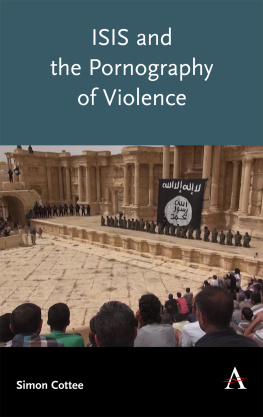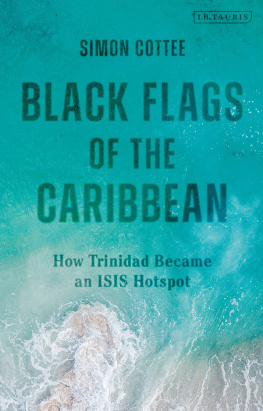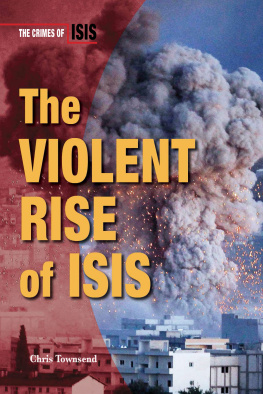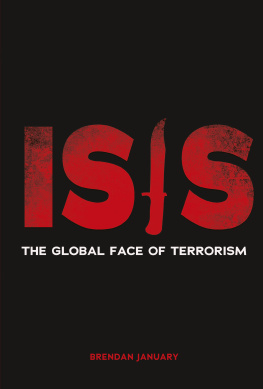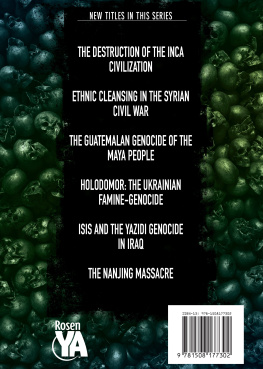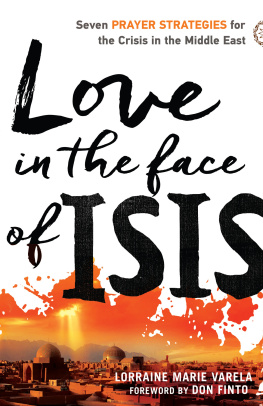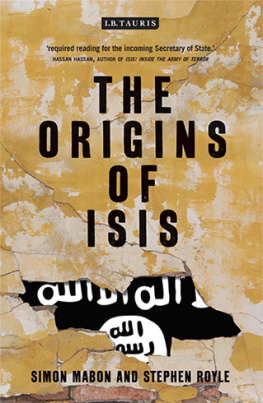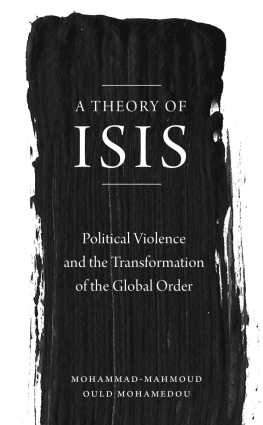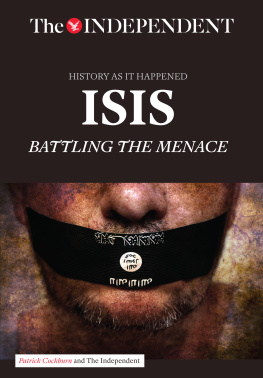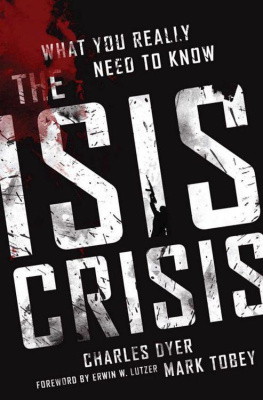ISIS and the Pornography of Violence
ISIS and the Pornography of Violence
Simon Cottee

Anthem Press
An imprint of Wimbledon Publishing Company
www.anthempress.com
This edition first published in UK and USA 2019
by ANTHEM PRESS
7576 Blackfriars Road, London SE1 8HA, UK
or PO Box 9779, London SW19 7ZG, UK
and
244 Madison Ave #116, New York, NY 10016, USA
Simon Cottee 2019
The author asserts the moral right to be identified as the author of this work.
All rights reserved. Without limiting the rights under copyright reserved above,
no part of this publication may be reproduced, stored or introduced into
a retrieval system, or transmitted, in any form or by any means
(electronic, mechanical, photocopying, recording or otherwise),
without the prior written permission of both the copyright
owner and the above publisher of this book.
British Library Cataloguing-in-Publication Data
A catalogue record for this book is available from the British Library.
ISBN-13: 978-1-78308-965-9 (Hbk)
ISBN-10: 1-78308-965-2 (Hbk)
ISBN-13: 978-1-78308-968-0 (Pbk)
ISBN-10: 1-78308-968-7 (Pbk)
This title is also available as an e-book.
To Keith Hayward
Contents
This book is a collection of essays, polemics and reportage on ISIS, spanning the four year period from its spectacular ascendancy in late 2014 to its no less spectacular demise in early 2018. Although the pieces are unmistakably grounded in my own judgments and opinions, they are informed by a broader scholarly knowledge about deviance, defection, terrorism and violence.
In my day-job I work as a senior lecturer in criminology at the University of Kent. While its a huge privilege to be paid to teach and do research on a subject that is richly dark, human and endlessly fascinating, one of the downsides is that I have to produce peer-reviewed articles for academic journals that few people read. These articles not only take months or even years to research and write; they also take months or even years to see the light of day, given the rigmarole of the peer-review process. Patience may well be a virtue, but its not one that I possess. This is why I find ideas-based journalism so appealing: not just because many more people are likely to read it than an academic journal article, but because its so wonderfully instantaneous. You write your piece and within a few days or weeks its out thereto be read, praised, tweeted or, more often, trashed, or still more likely, half-read, misunderstood or just ignored.
No doubt some academics, especially those who are instinctively skeptical of any public discourse that is not rooted in hard data, will turn their noses up at the pieces collected in this volume. But thats fine with me. These pieces are aimed at a wider, and not so prickly, audience.
The essays are organized into three thematic sections and vary in length and purpose: some take the form of 1000-word op-eds, whereas others are longer and more ruminative in tone and scope. A few are pieces of reportage. Some were commissioned, but most were not and were written out of an unshakeable urge to correct some misapprehension or myth, as I saw it at the time, or to amplify a point or argument that I needed to make. I dont know where this urge comes from. Obviously its not very endearing: the desire to correct, the urge to be heard. And obviously I need to get out more. But it seems necessary for the business of banging it out and starting an argument.
All of the pieces were posted online and contained hyper-links to sourcestypically news reports and scholarly articles and texts. I have restored these as footnotes. I have also used footnotes here and there to add clarity and context where necessary. I have made only a few revisions, so as to avoid repetitions of certain phrases.
Looking back through the pieces the underlying argumentative threads and purposes are relatively easy to discern and summarize. My aim has been to write about ISIS as, first and foremost, a revolutionary political movement with a theological vision that drives (or at least constrains) much of what it says and does. I have sought to understand the process by which someone (of whatever gender) comes to embrace that vision as an active search for meaning, purpose and existential fulfilment. At the same time I have resisted efforts, deep within our culture, to infantilize those who undergo this process as passive victims whos vulnerability makes them susceptible to a type of mind-control performed by sinister outsiders. I have sought to expose some of the limitations of structuralist explanations of terrorism by bringing into focus the low base rate of involvement in terrorist organizations and by emphasizing how crucial social and kinship ties are to this, while also subjecting to the severest criticism any attempts to pathologize terrorism. I have sought to document in ISIS the emergence of a new kind of liquid jihad in the West, where involvement, in many cases, reflects more a process of drift than any full ideological conversion, and where commitment is sustained by social networks. I have tried to draw attention to the subterranean aspects of the ISIS phenomenon, arguing that by embracing violence, honor, retribution and machismo ISIS represents not an outright rejection of Western culture but a perverted exaggeration of some of its underlying values. I am aware that this is not a popular line of thought. But I am convinced that it is a necessary condition for understanding the root of ISISs appeal in the West. And I have repeatedly emphasized just how little we know, and indeed can ever know, about the motives of those who embrace violence and do acts of terrorism.
All the pieces were written in England and America during the end of the Obama administration and the beginning of the Trump presidency. Which is to say they were written in a time of great social upheaval and political division. And much of that division can be seen in our current discourse on terrorism, where putatively objective reflection on its causes all too often degenerates into barely concealed moralizing and political posturing. Some of the essays document this politicization, but it is my hope that, for all their polemical zeal, they do not evince it.
It is probably too early to assess which pieces continue to hold up and which ones dont. One thing that makes me wince is just how impressed I was with the aesthetic quality of ISIS propaganda videos. I wasnt alone in this of course. But was it?
Not much really happens in the video. Indeed the action, if it can be called that, focuses on a group of quite odd looking British and Australian men, sitting together with their legs crossed, reading a pre-prepared script from an auto-cue. They are trying to explain, in their thick regional accents, why they left their lives in the West for ISISs jihad in Syria and Iraq. A man identified as Abu Bara al-Hindi says: Are you willing to sacrifice the fat job you have got, the big car you have got, the family you have? Are you willing to sacrifice this for the sake of Allah? He is wearing what appears to be an Emporio Armani t-shirt, which I dont think is a strong look for a jihadi warrior, especially one at war with Western imperialism. The man sitting to his immediate right has a lazy eye. And Abu Dujana al Hindi (real name Reyaad Khan) sits silently for long periods of time with his mouth ajar. Needless to say, these are not particularly rousing audio-visual tropes. Nor are the production values of the video particularly high. And yet many global media outlets ran a story on the video, praising its slickness, and giving it worldwide attention.

